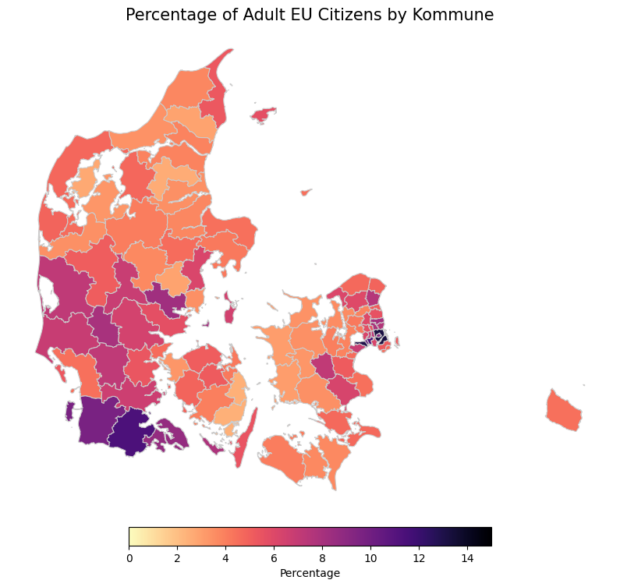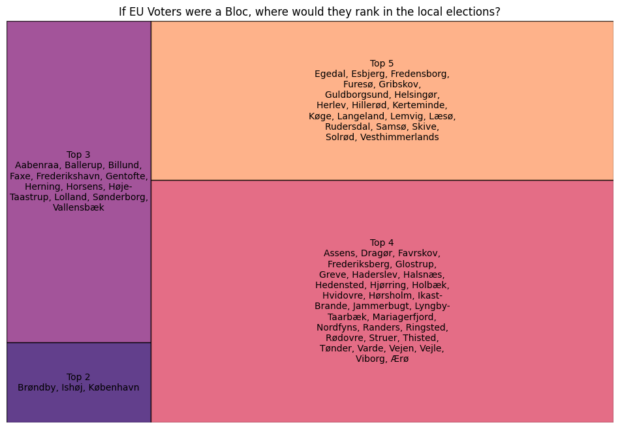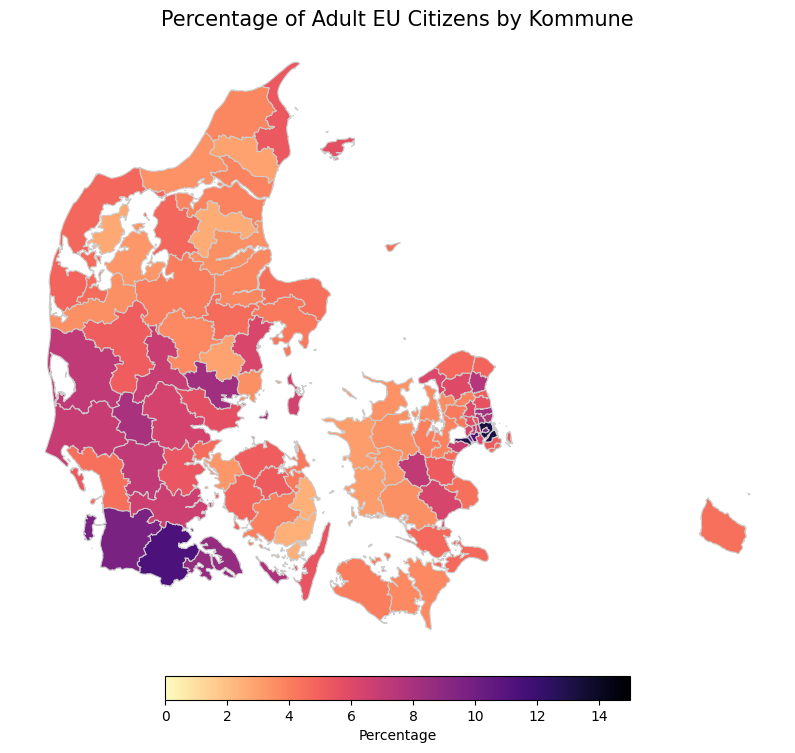Inspired by Robin Dickheiwer’s recent observations on the growing yet politically underrepresented international community in Denmark, this is an analysis of the percentage of EU citizens in Danish kommuner and how they could affect the outcome of next year’s local elections.
Danes, EU citizens, and internationals who have been residents for more than four years are eligible to vote in local elections. If we look at the figures for EU citizens and find out the proportion of them and Danish citizens, we find EU citizens are a significant minority of voters in local elections.
In the case of the Municipality of Copenhagen, they are more than 18% of the population.
If we were able to include data on long-term residents from non-EU countries, the percentage of potential international local election voters would be even higher.

Let’s be absurd for a minute and get serious afterward. Imagine a thought experiment where EU voters were a bloc and all voted for one new party in the next election.
In this hypothetical scenario, this party would come second in three kommuner and third in twelve others, based on the results of the most recent local elections in 2021. A new party supported by all EU citizens would be popular enough to gain at least one seat in many kommuner.

Aarhus Kommune, which did not even place in the graphic above, has nearly 16,000 adult EU citizens. If this group all voted for SF (who came third last time), they would have won second place. In fact, the same would be true if this bloc rallied behind Venstre, Enhedslisten, or Radikale Venstre in Aarhus.
Of course, EU citizens did vote in the 2021 local elections, so the maths is a little rocky, and Europeans are diverse politically speaking so unlikely to all vote the same way.
The serious point is that EU voters could well be a decisive factor for the top runners-up in the next local elections if only the parties would reach out to them. The greater the voter share, the more seats at the table and influence over the direction of the kommune.
While this analysis focuses on EU citizens, the influence of internationals could be even larger including non-EU long-term residents. International voters are ‘money on the table’, so to speak.
Traditionally, internationals are spoken about in Danish politics but not spoken to. Desired as free gifts from their countries to improve economic growth but feared as outsiders who will spoil the country with their foreign values.
If internationals were treated as political equals and included in the national conversation, they could play a crucial role for some parties looking to make gains in the next election.
The opposite is also true though: it is becoming less safe, politically speaking, to denigrate and disregard foreigners in Denmark. We are listening and many of us will be voting next year.
Kelly Draper Rasmussen is a data analyst with several years of experience and a member of the international community of Denmark. She is also a contributor to The Copenhagen Post













